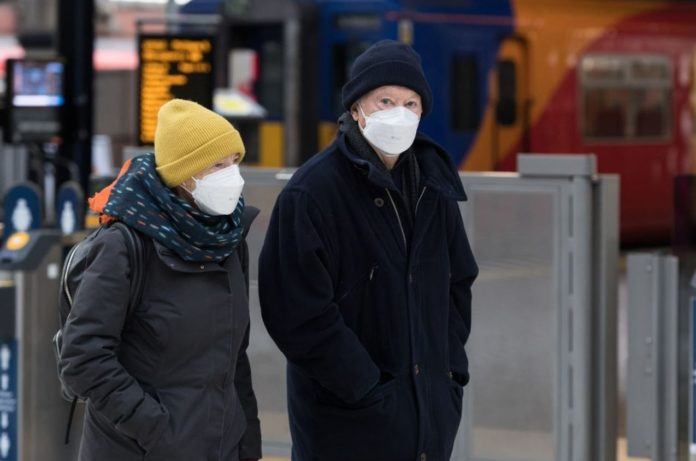Breakthrough infections were more common in those who received the Oxford-AstraZeneca or J&J/Janssen vaccines than in people who received the mRNA-based vaccines, suggests a new preliminary study yet to be peer reviewed.
Since its emergence in December 2019, COVID-19 has infected over 262 million people and claimed over 5.2 million lives. Despite the great efficacy of currently available vaccines, real-world studies have revealed outbreaks of SARS-CoV-2 infection in fully vaccinated patients.
The extremely infectious SARS-CoV-2 variants of concern (VOC) have been identified as the main causes of post-vaccination breakthrough infections. Although the majority of SARS-CoV-2 variants evolved through mutations outside the spike protein, a handful have mutations in the spike protein’s receptor-binding domain (RBD), which results in increased infectivity or innate immunity.
In this study, researchers compared the distribution of SARS-CoV-2 genotypes detected in 378 fully vaccinated persons to the prevalence of variations identified during regional surveillance of SARS-CoV-2 in the Netherlands’ South Limburg region from January to July 2021.
The current study categorized cases as those who were fully vaccinated against SARS-CoV-2, defined as more than 14 days after two doses of Pfizer-BioNTech, Moderna, or Oxford-AstraZeneca vaccines, or more than 14 days after one dose of Johnson & Johnson vaccine, or those who developed coronavirus-related symptoms and were subsequently tested positive for COVID-19 via real-time polymerase chain reaction (RT-PCR) or antigen test.
Patients who experienced symptoms consistent with COVID-19 infection, such as a cold, loss of taste or smell, diarrhea, nausea, exhaustion, or headache, were considered symptomatic. Asymptomatic cases were those who reported no COVID-19-related symptoms at the time of their positive test and had no symptoms during the seven-day follow-up period.
Hospitalized cases and those that resulted in death were classed as severe, while the others were classified as mild-moderate. The current investigation collected combined nasopharyngeal/oropharyngeal swabs in a viral delivery medium using qualified staff. Statistical analysis of viral sequencing and mapping data was performed.
The current study’s findings indicate that, prior to the emergence of the Delta mutation, breakthrough cases occurred at a consistently low rate, and that the rate of SARS-CoV-2 variants producing breakthrough infections corresponded well to the distribution of those variants in the region.
However, as the Delta type became common in the region, the proportion of breakthrough cases appeared to grow relative to total cases. It was impossible to tell if the growth in the relative proportion of breakthrough infections is due to the spread of the Delta, as the proportion of completely vaccinated persons also increased over that period.
Additionally, the scientists noted that vaccines based on messenger ribonucleic acid (mRNA) (0.14 percent) resulted in fewer breakthrough infections when compared to Johnson & Johnson/Janssen (0.46 percent) or Oxford-AstraZeneca (0.89 percent) vaccines. When completely vaccinated individuals with severe symptoms were compared to asymptomatic cases or individuals with mild-to-moderate symptoms, a significant difference in median age was also noted.
There was no correlation discovered between the SARS-CoV-2 genotype or vaccination type and clinical symptoms. Additionally, symptomatic people had greater virus loads than asymptomatic vaccinated individuals.
The breakthrough infections caused by the Delta variant were associated with higher virus loads than those caused by the Alpha version. These data imply that various vaccines’ efficacy has diminished as a result of the Delta variant’s appearance and that the elderly are more susceptible to severe disease as a result of SARS-CoV-2 breakthrough infections.
This study has some practical limitations. Due to the lack of reporting of asymptomatic or moderate cases from local hospitals to the regional public health authority, the number of reported breakthrough infections is underestimated. Additionally, asymptomatic cases were monitored for a brief duration, which likely resulted in an underestimate of symptomatic cases.
In conclusion, this research found that adults who received the Oxford-AstraZeneca or Johnson & Johnson/Janssen vaccine were more likely to develop SARS-CoV-2 breakthrough infections than those who received mRNA-based vaccines. As the Delta variant grew prominent, the rate of breakthrough infections increased dramatically, albeit severe illness was reported in the elderly.
Due to the fact that the Delta type tends to impair vaccination effectiveness and raise viral loads in both vaccinated and unprotected individuals, booster shots for particular vaccines and at-risk populations may help avoid future COVID-19 outbreaks.
Source: 10.1101/2021.11.22.21266676v1
Image Credit: Getty
You were reading: Breakthrough infections after AstraZeneca or J&J/Janssen vaccines are more common than mRNA shots
Important note
Preliminary scientific papers published on medRxiv are not peer-reviewed and should not be regarded as conclusive, should not be used to influence clinical practice or health-related behavior, and should not be recognized as established information.
